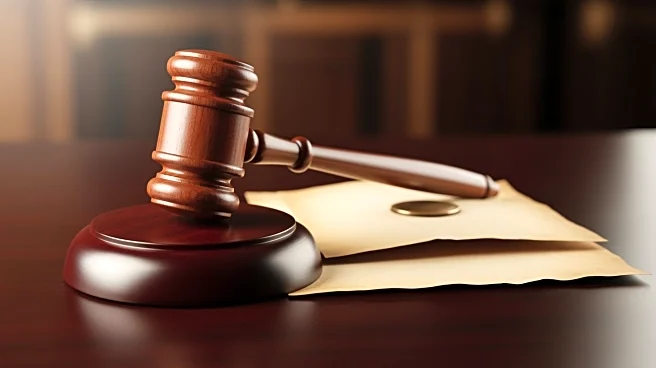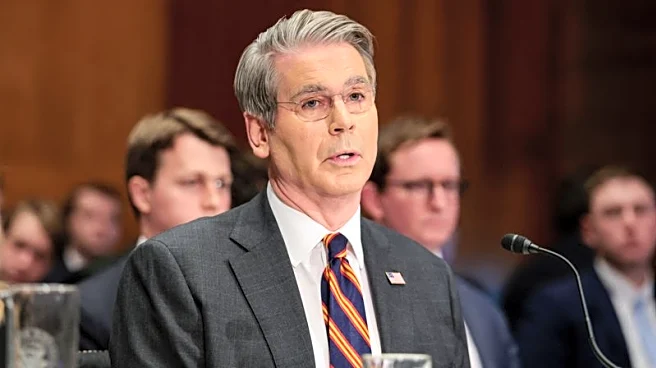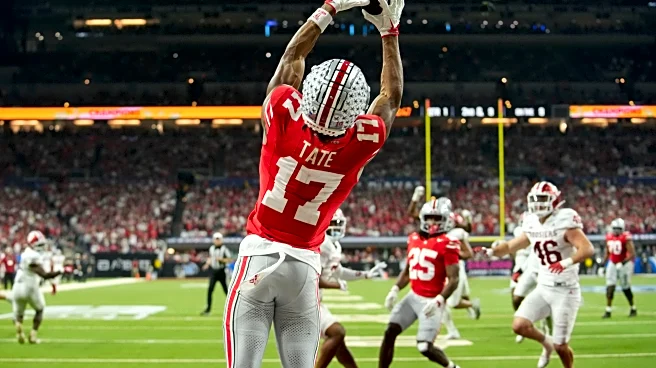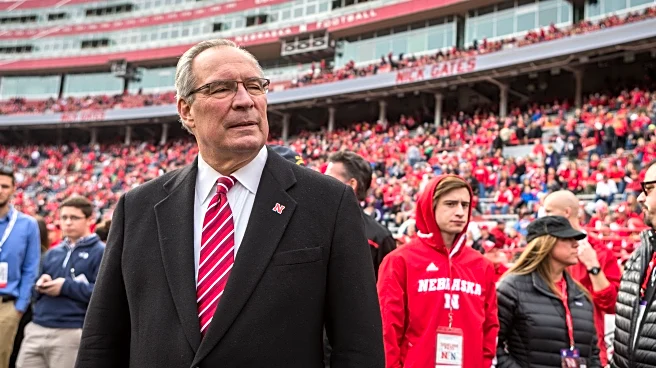What's Happening?
The Department of Justice (DOJ) has requested a federal court in Florida to unseal grand jury transcripts related to the initial federal investigation of Jeffrey Epstein. This request follows the recent passage of the Epstein Transparency Act by Congress,
which mandates the public release of unclassified records related to Epstein. The DOJ argues that grand jury material is not exempt from this law. The request pertains to transcripts from 2005 and 2007, during the first federal investigation of Epstein in Florida. The DOJ also seeks to lift the protective order over the case, promising to redact victim-related and personal identifying information. This move comes after previous requests to unseal grand jury information in New York and Florida were denied.
Why It's Important?
The release of grand jury material could provide further insight into the federal investigation of Jeffrey Epstein, a convicted sex offender whose case has drawn significant public attention and controversy. The transparency act reflects a legislative push for accountability and openness in handling high-profile cases involving sexual exploitation. The DOJ's actions may impact public trust in the justice system, particularly in cases involving powerful individuals. The unsealing of these documents could also affect ongoing discussions about the legal processes surrounding Epstein and his associates, including Ghislaine Maxwell, who is serving a prison sentence for related offenses.
What's Next?
The court's decision on the DOJ's request will determine whether the grand jury material will be made public. If granted, the DOJ will proceed with redacting sensitive information before release. The outcome may influence future legislative and judicial actions regarding transparency in similar cases. Stakeholders, including lawmakers and advocacy groups, may respond based on the court's ruling, potentially leading to further legal and political developments.
Beyond the Headlines
The Epstein case has broader implications for discussions on legal transparency and the handling of cases involving sexual exploitation. The legislative and judicial responses to this case may set precedents for how similar cases are managed in the future. Ethical considerations regarding victim privacy and the balance between transparency and confidentiality are central to this ongoing legal narrative.

















